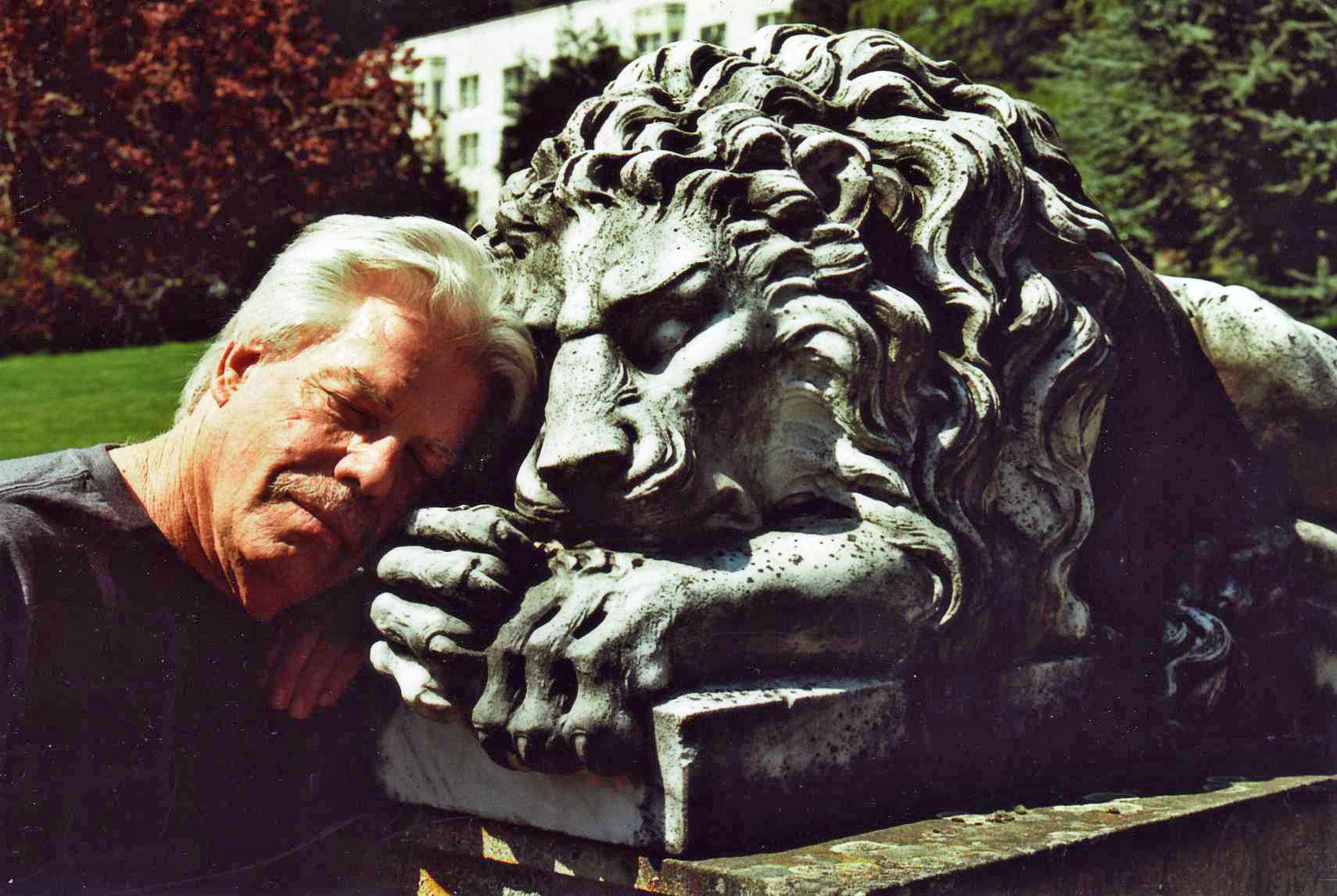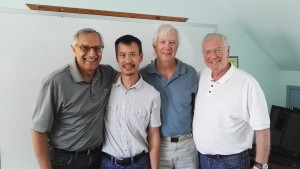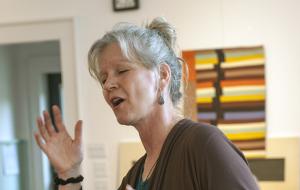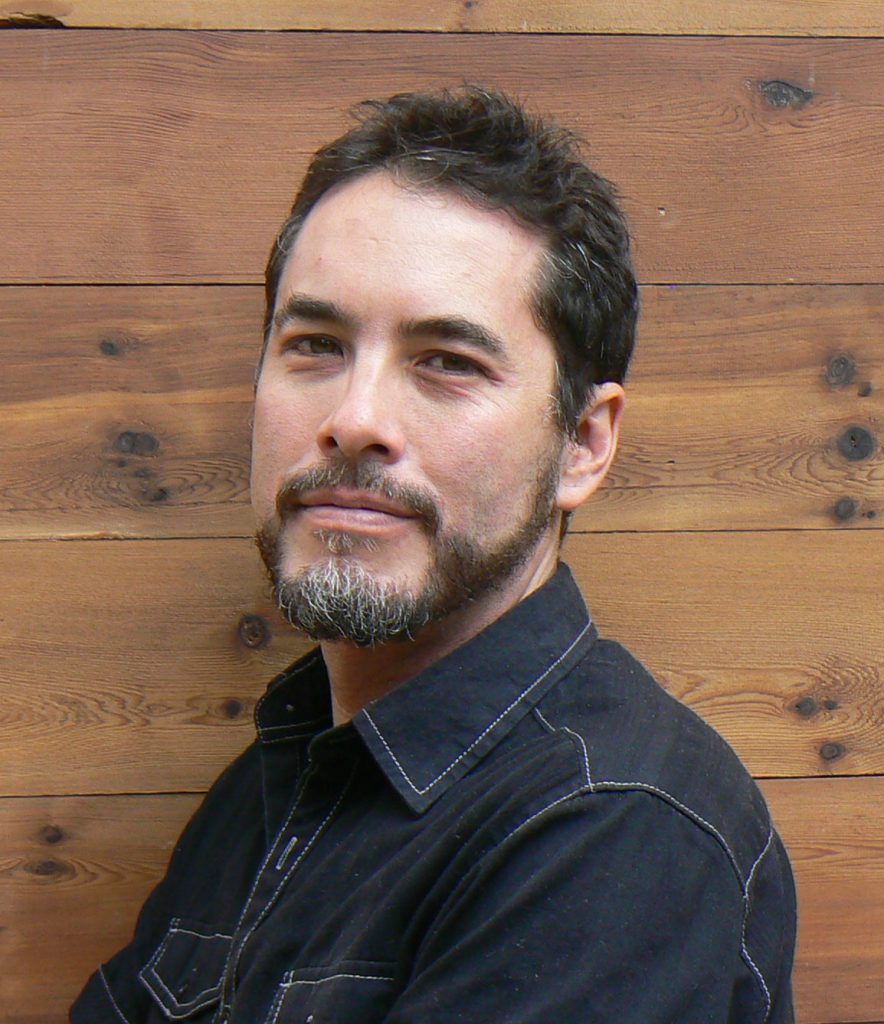Writing to My Ugly Old Friend
Depression and the journal
By Ellery Littleton.
I’m reluctant to write about my ongoing experience with depression. It feels hard and heavy. And I have already written about it at great length, ad nauseam, it sometimes feels like, in my journal, where I first named it “my ugly old friend.” But I wanted to share some of my thoughts with my Haven friends … so here goes …
I have been immersed in a big deep clinical depression for seven or eight months now, and it has been quite a journey – not one I would wish on anyone. Had I been more prescient, I might have seen – or felt – it coming. I think now that I have been depressed several times throughout my life, but didn’t recognize it, or know what to call it. So it was something of a surprise when it finally arrived full-blown early last autumn, and I was able to identify it: “This feels like depression.”
Since that time, my life has changed profoundly; it has shrunk and faded and for some months now, I have been living like an isolated ailing hermit, keeping company only with my wife Mary Helen, my children occasionally, a few family members and a handful of friends. I have lost a great deal of weight; my appetite has shrunk incredibly; my creativity has faded; my sense of humor has dried up; and in general, my joie de vivre has abandoned me. I have felt lonely, exhausted, despairing, defeated, fearful, confused, angry, sad … well … you get the picture. And most importantly, perhaps, I must mention the persistent, ongoing, sometimes terrifying specter of approaching death. I sometimes feel that I am on a steep downward-slanting trajectory, ending in my inevitable demise, sometime relatively soon. Before my time. But just what is “my time?” That is one of the key issues that plagues me, almost daily.
I get lots of good help from good people, most particularly Mary Helen, without whose deep, heartfelt compassion, love and creativity, and daily assistance and support, I think I would be dead by now. My list also includes my family doctor, a counsellor (rather in the Haven mode, whom I like very much; the work feels familiar), a psychiatrist, and numerous others – naturopaths, osteopaths, and chiropractors, among them. I have read several famous books and essays by famous authors on depression and death, I have meditated on these matters at length, I have written copiously – including dialogues with fear and death, and a long rambling piece called “My journey through the valley of the shadow of death – and how I survived it.” As a writer, and long-time intensive journaling teacher, I have tried to put my pen where my mouth is, so to speak, and write my way through this challenging, complex and threatening twist of fate, which goes by the name of “Depression.”
It soon became clear to me when I started exploring the cultural phenomenon of depression which lies over our society like a noxious fog, that no one really knows what it is or where it comes from, or what causes it. There is a myriad of theories, a host of detailed, thoughtful books and counselling techniques, several major approaches to coming to grips with it – including anti-depressant drugs (dismissed by noted researchers on the one hand as useless, even dangerous, and embraced on the other by some psychiatrists and much of the medical community as the primary saving grace), an entire Buddhist-influenced meditative mindfulness approach, and several outside-the-box approaches using medicines utilized by first nations and other healers, with accompanying rituals. And these represent just the proverbial tip of the iceberg.
What is a poor boy to think? I have said yes to some of the above, and no to a lot of it. I have read deeply and been deeply counselled, and still my ugly old friend is waiting for me every morning, determined to take me by the hand in his palsied grip and force me to walk a mile or two in his ill-fitting painful shoes. An awkward metaphor, to be sure, but somehow it works for me.
Inevitably, in the grip of an ongoing major depression, one is bound to have to contemplate the fear of death; it appears to be the major feature of the whole vast syndrome. Right here before me on my desk I have several volumes which are on many major reading lists about depression, and, of course, death. The first five, for instance, are: Who Dies? by Stephen Levine; The Denial of Death by Ernest Becker; On Death and Dying by Elizabeth Kubler-Ross; The Second Half of Life by Angeles Arien; Japanese Death Poems, compiled by Yoel Hoffman. And on the list goes.
When inflicted with a major depression, it appears, most people are unwillingly dragged into an ongoing relationship with fear (in general) and fear of death in particular. The ugly old friend wins the balance of power with frightening regularity, as a significant number of individuals dealing with clinical depression, either die from it (as from a mysterious emotional decline) or commit suicide rather than deal with the daily darkness and despair, described most memorably by Winston Churchill and others as “the Black Dog.”
Most adults of the Haven-persuasion know exactly what I am talking about. I don’t profess to be an expert in depression; I am a bumbling amateur, flailing in the dark; there is much I don’t know. And in saying that, I am echoing the opening chapters I have read in various forms in many books about depression by several well-known experts, which begin by saying something like “we don’t really know what causes depression or how, precisely, effectively, to cure it.” For every promising solution put forward, there is an equal and contrary opinion, proposing a very different approach.
To get well from depression, you have to be lucky; you have to be one of those relatively rare individuals who finds an anti-depressant which actually helps, or finds a therapist who actually helps. Or you have to carve out a path toward wellness yourself – with help from just the right people – with diligence and discipline which may include elements from a number of different approaches – from hard-nosed medical psychotherapy to Buddhist meditation to radical approaches involving “medicines” which fall outside the widely approved medical model. Or to finding your own way – through running, singing, painting, writing, yoga, dancing, prayer, contemplation, volunteering, teaching … you name it. Maybe, in fact, it has your name on it.
For myself, I have written essays, long poems, dialogues, daily journal entries – all dealing with my ongoing experience with depression. Has this process made me feel any better? I honestly can’t say for sure. Lately, however, I have returned to writing my favorite poetic form – the short poem, usually the haiku, which allows me to say a lot in a short space and leave room for the reader to draw their own conclusions. Many of these poems, which I have written over the last few weeks, follow the Japanese model, as set out in Japanese Death Poems, wherein Zen monks and haiku poets on the verge of death have written their last few lines before departing this world. These poems share the beauty of a poetry that has already gained the admiration of the West, and they reflect important aspects of an approach to death that has brought a measure of peace and acceptance to a culture very different from ours. Maybe there is something to be learned here.
For me, there is some sense of deep personal satisfaction in writing this kind of poetry, reflecting on my own experience with depression and ongoing fear of death. It has helped me to feel better, and to reinvigorate my creativity somewhat, which had all but disappeared.
I miss my many friends at The Haven terribly, and it has been a painful and immensely sorrowful experience for me to have had to withdraw from active participation in teaching and socializing at that special place, with such special people. I look forward to finding my way back there and I want to let you know that I love what you do, and who you are. I send a big collective hug to you all, and really hope to see you again before too long. In the meantime, here are some poems which I hope will say something to you about what I have been experiencing. I hope they will ring a few bells for you.
(First poem – written to Mary Helen on her 40th birthday, June, 1987)
halfway there!
ah well …
when I reach the end
I will begin again
who dies?
we all know
but let’s have dinner first
learn to die
before you die
then the real thing
is no surprise
sign over the bed
in the old performer’s hospice:
“how’s my dying?”
outside in the spring sunshine
I am thinking about dying …
the daffodils are nodding, every one
is there any solace in knowing
that every single person on this earth
will die?
no
the reincarnation dance
coming around again …
next time I want to tango
with you
evening cherry blossoms …
I slip my camera out of my pocket
one last time
where do you want to fall
when you die? he asked
into love I answered
death in itself is nothing …
but I fear to be
I know not what
I know not where
my body has faded away
now nothing stand between me
and the universe
a winter dream has ended
where did it go?
south with the butterflies
raven I will follow you
through the dark forest
leaving my little campfire behind
I have been waiting a long time
to walk with the ancestors
arm in arm across the lawn
to the old green swing
and the picnic table
if fate agrees I shall return
to this temple garden
to see the bonsai branches
I so carefully shaped
I write, erase, rewrite, erase again
but … too late …
the flower has fallen
conscious living …
conscious dying …
easy for you to say
I entered the world with nothing
I depart with nothing
in between … something mysterious
one more cup of sake
and some coals for the fire …
tomorrow with the snow
I will be going
why do I hesitate?
I have a passport
from the Buddha
the wind on the lake
has settled down
the moon is still
at last my mind is clear
I am ready with my old broom
to sweep the garden path …
but the wind has blown
the leaves away
Ellery Littleton
Victoria, BC
April, 2017
Ellery is a writer and Haven elder who has taught journalling workshops at The Haven for many years. His most recent book of poems, Travelling Light: Haven Haiku, is available from the Haven store and on Amazon.







